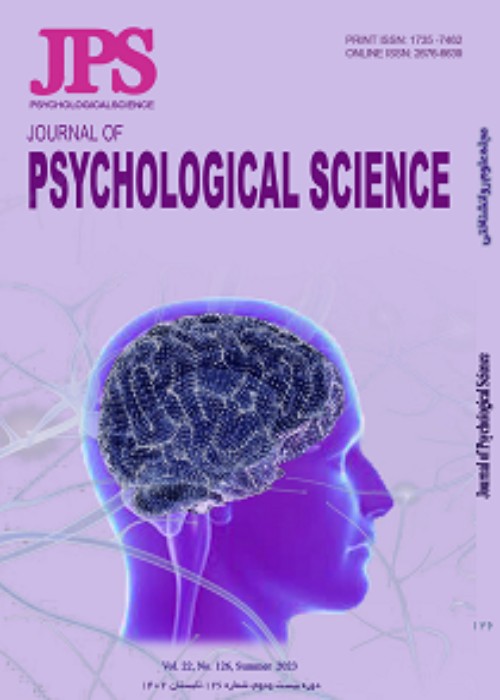The effecacy of motivational interview on intentional self-regulation, distress tolerance and psychological flexibility in men with substance abuse disorder undergoing maintenance therapy
Substance abuse is one of the most important causes of risky behavior and its detrimental effect on other social harms is tangible and takes up a substantial amount of funds and resources. It must be noted, however, that different treatment methods have not been successful in treating the psychological structures of addiction, and many former users are still returning to using after quitting.
the purpose of the present study was to investigate the effectiveness of mindfulness therapy on intentional self-regulation, distress tolerance and psychological flexibility in men with substances abuse disorder undergoing maintenance therapy.
This was a quasi-experimental study with a pretest-posttest design with a control group. The statistical population of the study included all men with a substance abuse disorder undergoing maintenance therapy, who were referred to Robat Karim addiction treatment centers in 2020. Among these, 36 people were selected using a random cluster sampling method and randomly assigned to the expetimental and control groups. The data collection tool in the present study included the Intentional self-regulation Questionnaire (Freund, Baltes, 2002), the Distress Tolerance Questionnaire (Simons, Gaher, 2005) and the Acceptance and Action Questionnaire (Bond et al., 2011). Ten 50-minute mindfulness therapy sessions were conducted with the experimental group. Data analysis was performed using covariance analysis in SPSS26.
Results showed that mindfulness was significantly effective on all three variables (intentional self-regulation, distress tolerance, and psychological flexibility) in the experimental group (P<0.0001), and the mean of the experimental group was significantly higher than the mean of the control group (P<0.0001).
Based on the results of the study, it is concluded that mindfulness therapy is effective for reducing intentional self-regulation, distress tolerance, and psychological flexibility in men with substance abuse disorders by encouraging them to focus on their experiences in the present without judgment. Consequently, mindfulness therapy can be used in conjunction with other treatment approaches for individuals suffering from substance abuse.
- حق عضویت دریافتی صرف حمایت از نشریات عضو و نگهداری، تکمیل و توسعه مگیران میشود.
- پرداخت حق اشتراک و دانلود مقالات اجازه بازنشر آن در سایر رسانههای چاپی و دیجیتال را به کاربر نمیدهد.



